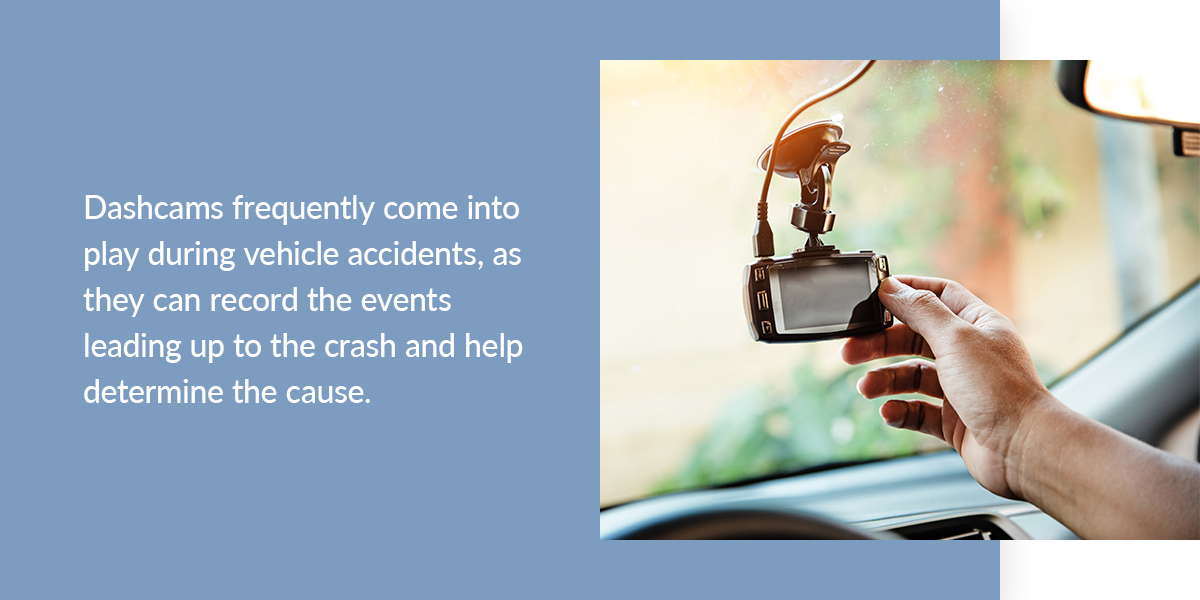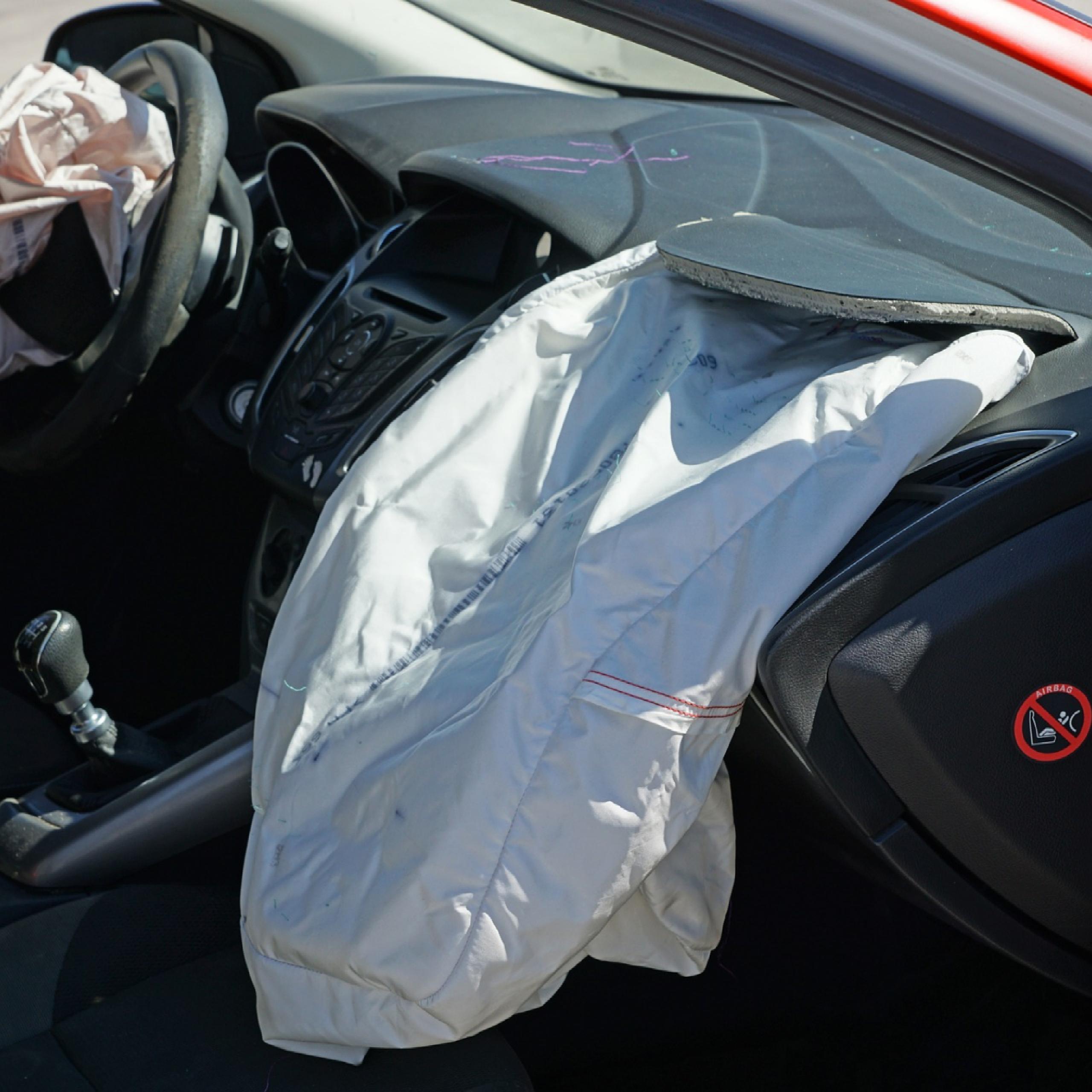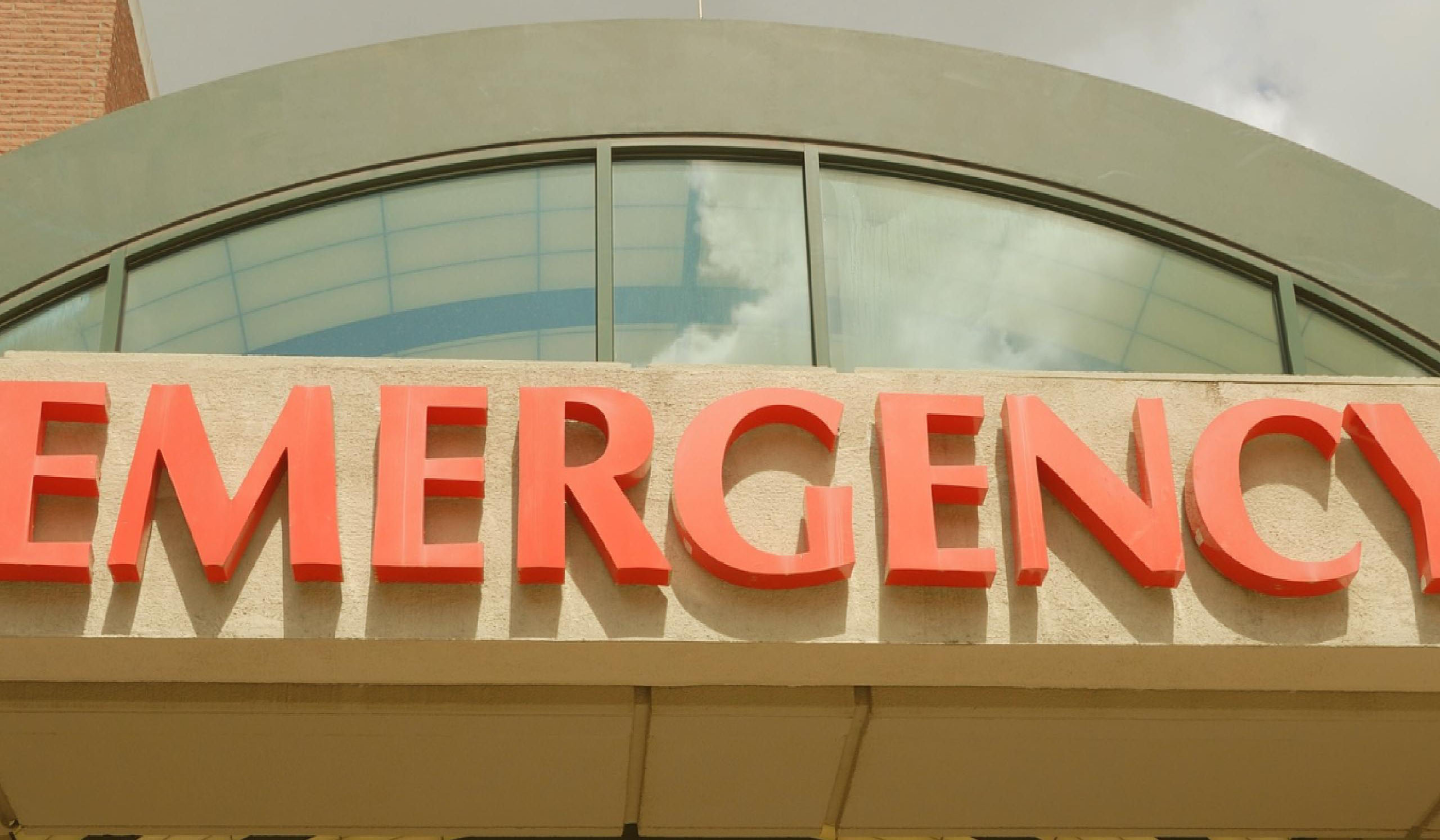We live in a video-conscious society. You can find cameras just about anywhere these days — on city streets, inside public buildings and even in our pockets in the form of smartphones. A dashboard camera (dashcam) is a tool vehicle owners can use to capture accidents and other events while on the road.
What Do Dashboard Cameras Capture?
A dashcam is a small video camera drivers can mount on a dashboard or windshield. The camera will capture anything within its field of vision. Law enforcement agencies have used dashcams for decades to record events during traffic stops and many private citizens install them inside their vehicles.
You can connect a dashcam by plugging it into a vehicle’s cigarette lighter, just like when charging a smartphone, or via the unit’s external power source. You can also permanently install a device by hardwiring it to your vehicle’s fusebox.
Dashcams are legal in all 50 states — with certain restrictions. In Pennsylvania and New Jersey, you can mount a dashcam anywhere in the vehicle, as long as it does not distract the driver. Also, if the device has audio capabilities, you must inform your passengers if you intend to record their conversations.

Benefits of Dashcams in Car Accidents
Dashcams frequently come into play during vehicle accidents, as they can record the events leading up to the crash and help determine the cause.
Whether a dashcam can help your car accident industry case depends on the circumstances. The footage may clearly show that you were obeying the road rules and driving safely when the crash occurred. It can also provide evidence that someone else caused the accident. For instance, the recorded video could indicate that the operator was driving erratically or contributed to the crash by breaking a traffic law.
Dashcams are also invaluable for capturing the events after the accident and supporting your side of the story. When drivers are intoxicated, the footage may show them staggering after exiting the vehicle. The audio component may record slurred speech or even an acknowledgment that the accident was their fault.
Cons of Dashcams in Accidents
A dashcam serves as an impartial electronic witness to an event. While the camera footage can support you if you did not cause the accident, it can also work against you if you were at fault. A savvy insurance company attorney can often detect discrepancies in your story after viewing the video and attempt to use them to destroy your case. The recording could also show that you committed a traffic violation or possibly lead to criminal charges.
Due to these potential pitfalls, it’s crucial to let an experienced personal injury attorney review the footage before sharing it with law enforcement or an insurance company. Do not attempt to erase or tamper with the recording, as this could have severe legal consequences.

Is Dashcam Footage Admissible in PA and NJ?
Dashcam footage can serve as evidence in a personal injury claim in Pennsylvania or New Jersey as long as the driver mounted and operated it legally. Attorneys and insurance companies can also use it to determine fault during an accident. If the case goes to trial, the judge will likely review the footage to determine its admissibility before allowing a jury to watch it.

Contact Spear Greenfield to Learn More About Dashcams and Car Accident Claims
If you’re in Pennsylvania or New Jersey, the experienced legal team at Spear Greenfield Personal Injury Attorneys will help you learn more about how a dashcam can impact your car accident injury claim. Call us at 1-800-90-LEGAL for a free consultation today.
Call or text (215) 985-2424 or complete a Free Case Evaluation form












